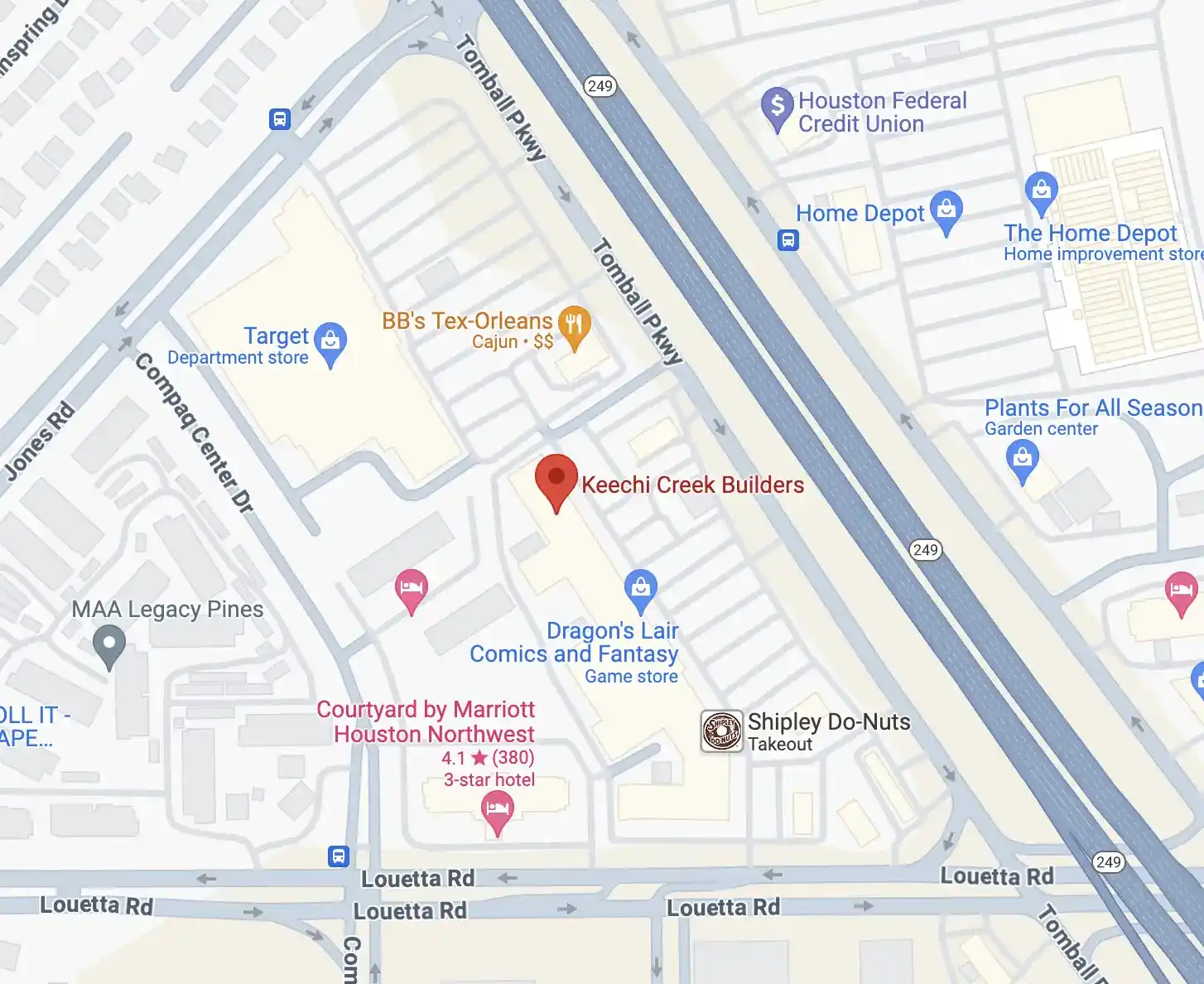So, you've decided to build a castle, or rather, a custom home in Houston, where everything's bigger, including the price tag. Though it's tempting to dive headfirst into your dream project, it's important to have a clear understanding of what's ahead. From land costs to materials, labor, and the ever-dreaded hidden fees, we've got ten tips that'll help you navigate this intricate maze. Curious about how to strike a balance between your budget and your dream home? Stick around, we're just getting started.
Key Takeaways
- Consider design complexity, materials, and size to estimate final custom home costs in Houston.
- Land acquisition costs hinge on location, size, and zoning laws; developer partnerships can lower these costs.
- Design, architectural, and construction costs are influenced by layout revisions, sustainable elements, material sourcing, and labor negotiations.
- Financing options, insurance expenses, eco-friendly materials, and compliance with zoning restrictions are crucial for accurate budgeting and cost management.
Understanding Houston's Housing Market
To get a grip on the costs of building a custom home in Houston, you first need to delve into the intricacies of the city's dynamic housing market. Understanding market trends is critical; these trends, after all, influence the cost of real estate investment.
Houston's market is unique, given that it's one of the fastest-growing cities in the United States. This rapid growth has led to increased demand for housing, pushing up prices exponentially. It's noteworthy that despite the city's significant expansion, its housing market remains relatively affordable compared to other major U.S cities. However, don't let this fool you. The cost of building a custom home can still be steep, especially in desirable neighborhoods.
An analytical look reveals that Houston's housing market is cyclical, just like other markets. Prices often fluctuate depending on the time of the year, with the warmer months typically seeing higher sales and, consequently, higher prices.
Essentially, as a potential investor, you've to stay abreast of these market trends. Understanding the Houston housing market dynamics can help you strategically plan your investment, ensuring you get the most value for your money while building your dream custom home.
Factors Influencing Custom Home Prices
When planning your custom home build in Houston, it's crucial to consider several key factors that significantly influence the price. The design complexity, materials used, and the size of your home play a huge role in determining the final cost.
Detailed, intricate designs require more resources and labor, which can inflate your budget. Therefore, budget planning is an essential step to ensure the design aligns with your financial capacity. On the other hand, the type and quality of materials used also affect the cost. High-end materials like marble or hardwood inevitably drive up the price, but they also provide longevity and aesthetic appeal.
Size is another critical factor; naturally, a larger home will cost more due to increased materials and labor. However, it's not just about the square footage. The number of rooms, bathrooms, and other features like a garage or basement also impact the cost.
Lastly, remember that cost estimation should be given considerable attention. A precise estimate will help you plan for unexpected expenses and keep your project within budget. It's always advisable to work with a reputable builder who provides a detailed estimate, breaking down costs for transparency.
Land Acquisition Costs in Houston
Beyond the cost of building your home, acquiring the land in Houston is another significant expense that you'll need to factor into your budget. The cost of land can vary significantly, depending on a variety of factors, including location, size, and zoning laws impact.
Zoning laws in Houston can impact land acquisition costs significantly. If the land you're eyeing is zoned for residential use, you're in luck - this could make your home-building process smoother. However, if it's zoned for commercial use, you might face higher costs, as rezoning can be a costly and time-consuming process.
Developer partnerships can also affect the cost of land acquisition. Some developers may offer discounts on land acquisition if you agree to use their services for building your home. This can be a cost-saving option, but it's essential to thoroughly vet the developer and ensure they can deliver the quality you're after.
Design and Architectural Fees
After securing your land, you'll likely face the next substantial expense: design and architectural fees. This phase requires you to undertake a careful architect selection process, ensuring you choose a professional who understands your vision and can translate it into a functional, aesthetically pleasing design.
Navigating the cost of this phase can be complex, but here are 4 key components to consider:
- Basic Design Fees: These costs cover the creation of your home's layout, including floor plans and exterior views. This can range from 5% to 15% of the total project cost.
- Revisions: Changes to the initial design can incur additional costs, so it's critical to have a clear vision and communicate it effectively.
- Sustainable Design Costs: If you're keen on incorporating sustainable elements, be aware that these can add to the overall expense. The long-term savings and environmental benefits often justify these costs.
- Permit Acquisition: Architects often handle the securing of necessary permits, a service that's typically included in their fees.
Construction Materials and Labor Costs
Having navigated the intricacies of design and architectural fees, it's crucial to shift your attention towards the costs of construction materials and labor, an equally significant part of your custom home project budget. Material sourcing plays a pivotal role in this phase. It's not just about getting the best quality; it's also about finding the right price. You'll need to research and negotiate with multiple suppliers, ensuring you're getting the most value for your money.
But don't overlook labor costs. They can quickly add up, especially if you're not mindful of labor negotiations. It's essential to strike a balance between fair wages for the workforce and remaining within your budget. Remember, skilled labor isn't cheap, but it's worth investing in to ensure your home is built to last.
In Houston, the construction materials and labor market can be volatile, with prices fluctuating based on supply and demand. So, it's crucial to keep an eye on these costs and adjust your budget accordingly.
In the end, it's about smart planning and strategic spending. By paying close attention to material sourcing and labor negotiations, you can manage these costs effectively and keep your custom home project on track.
Custom Features and Their Costs
While you're diligently managing your construction and labor costs, it's equally important to consider the expenses associated with the custom features you've envisioned for your home. These customizations, particularly luxury amenities and eco-friendly options, can significantly affect your overall budget.
- Luxury Amenities: High-end features such as a sauna, wine cellar, or a home gym can elevate your living experience, but they're not without hefty costs. It's crucial to understand their expenses and the maintenance they'll require.
- Eco-Friendly Options: Sustainable materials and energy-efficient systems are admirable choices. While they may have higher upfront costs, they can save you money in the long run through reduced energy bills and maintenance.
- Custom Design Elements: Unique architectural elements, personalized floor plans, or bespoke cabinetry can add distinctiveness to your home. However, these require additional design and craftsmanship, thus increasing costs.
- Technological Features: Smart home integration, from automated lighting to security systems, is increasingly popular. These, too, come with costs, both for installation and potential future updates.
Financing Your Houston Custom Home
Navigating the financial landscape of building a custom home in Houston can be intricate, but with careful planning and understanding of available financing options, you can turn your dream home into reality. There's a myriad of loan options to explore. Traditional mortgages, construction loans, and government-backed loans are among the most common.
Traditional mortgages typically require a sizable down payment but offer competitive mortgage rates. It's a suitable choice if you have a healthy savings account. Construction loans, on the other hand, are short-term loans that cover the cost of building or renovation. They're converted to a regular mortgage once construction is complete. This two-in-one option can be a convenient choice if you're starting from scratch.
Government-backed loans can provide lower down payments and interest rates. FHA and VA loans are examples of this. They have stringent qualification requirements but can be a boon if you're eligible.
Potential Hidden Costs
As you map out your financing strategies, it's crucial to consider potential hidden costs that may surface during the construction of your custom home in Houston. These costs aren't always apparent in the beginning, but they can significantly impact your budget if not properly accounted for. Permits, impact fees, and unexpected site preparation expenses are just a few examples of hidden costs that can arise during the process. To avoid surprises, it's essential to work with experienced professionals who can help you estimate and manage custom home building costs Houston homeowners commonly encounter. Staying informed and proactive will help ensure your project stays on track financially while meeting your vision.
Here are four potential hidden costs you should anticipate:
- Insurance expenses: The construction of a custom home requires comprehensive insurance coverage. This includes builder's risk insurance, liability insurance, and potentially more depending on the specifics of your project.
- Permit complexities: Acquiring the necessary permits for your home can be a complex process with varying costs. The city of Houston has its own specific requirements and fees that could add up quickly.
- Utility connections: You'll need to pay for connecting your home to city utilities, including water, sewer, electric, and gas systems. These costs can be substantial.
- Landscaping expenses: Finally, don't overlook the cost of landscaping. The size and complexity of your yard will influence this cost.
In essence, establishing a realistic budget requires a detailed understanding of both apparent and hidden costs. It's crucial to factor these into your financial plan to avoid unexpected surprises down the line.
Cost-saving Strategies for Custom Homes
Implementing cost-saving strategies can significantly reduce the financial burden of building a custom home in Houston, allowing you to maximize your budget without compromising on quality or personal style. Your first order of business should be a thorough market research to identify and source eco-friendly materials. These materials not only reduce your carbon footprint but can also be cost-effective in the long run due to their durability and energy efficiency.
Secondly, never underestimate the power of negotiating contracts. Be proactive and negotiate with your contractor for better rates or discounts on bulk purchases. Remember, every dollar saved adds up, helping to keep your budget in check.
Additionally, consider the design of your home. Opting for a simple, yet elegant design can significantly reduce costs without sacrificing style. Avoid complex architectural elements that require skilled labor and expensive materials.
Lastly, integrate energy-efficient features such as solar panels and insulated windows into your design. These features may require an upfront investment but will save you a considerable amount in utility bills over time.
With these cost-saving strategies, you'll be well on your way to building your dream custom home while keeping your finances intact.
Navigating Houston's Building Regulations
Once you've got your cost-saving strategies in place, it's time to familiarize yourself with Houston's building regulations, ensuring a smooth construction process for your custom home. Navigating these codes might seem daunting at first, but understanding them is key to avoiding costly errors and delays.
- Permit processes: Before you can start construction, you'll need to secure necessary permits. This includes building permits, electrical permits, and plumbing permits. Each permit has its own process and fee, so plan accordingly.
- Zoning restrictions: Houston has specific zoning laws that dictate what can be built where. You'll need to ensure your custom home design fits within these regulations.
- Inspections: During construction, expect regular inspections to ensure compliance with building codes. Inspectors will look at everything from the foundation to the electrical system.
- Final approval: After construction, your home will need final approval from the city. This involves a comprehensive inspection to confirm everything is up to code.
Frequently Asked Questions
What Are the Average Maintenance Costs for a Custom Home in Houston?
On average, you're looking at around $1,200 annually for maintenance on a custom home in Houston. Remember, energy efficiency and landscaping costs can significantly impact this figure, so factor them into your budget.
How Do the Costs of Custom Home Building in Houston Compare to Other Major Cities in Texas?
In Houston, land acquisition costs and financing options can make custom home building less expensive than in other major Texas cities. You'll find more affordable options here, making your dream home more attainable.
How Does Houston's Climate Influence the Costs of Custom Home Building?
Houston's humidity can increase your building costs due to necessary mold-resistant materials. Also, hurricane-resistant designs are a must, upping expenses. These climate-related factors make Houston custom homes pricier compared to other Texas cities.
Are There Specific Insurance Considerations for Custom Homes in Houston?
Yes, there are. Your insurance premiums might be higher due to custom features. Also, you'll need to explore various coverage options to ensure all unique aspects of your custom home in Houston are adequately insured.
What Are the Potential Resale Values for Custom Homes in Houston?
In Houston's housing market, your custom home's resale value can significantly increase if you've invested in high-demand amenities. Location, quality of construction, and market trends also play a major role in determining resale value.










![prism2023 winner logo[8]](https://files.keechicreekbuilders.com/2024/11/prism2023-winner-logo8-e1731607791571.webp)
